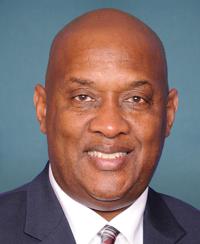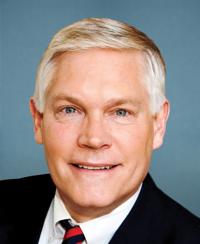H.R. 4352: Houses Over Middle-Class Exploitation Schemes Act
This bill, known as the Houses Over Middle-Class Exploitation Schemes Act (HOMES Act), proposes changes to the Internal Revenue Code of 1986 concerning tax deductions available to taxpayers who own large numbers of single-family rental properties.
Overview of the Bill
The bill specifically targets "disqualified single family property owners," defined as those who own 50 or more single-family residential rental properties. The key provisions of the bill are as follows:
Disallowance of Interest Deductions
The bill aims to prevent disqualified single-family property owners from deducting interest expenses on their mortgages related to these rental properties. This means:
- If you own 50 or more single-family rental properties, you cannot deduct any interest paid or accrued on loans for these properties on your tax returns.
- However, there are exceptions. You can still deduct interest if the property is sold in the same taxable year to an individual for their primary residence or to a qualified nonprofit organization focused on affordable housing.
Disallowance of Depreciation Deductions
In addition to interest, the bill disallows depreciation deductions for the same group of property owners. This means:
- Disqualified single-family property owners cannot deduct depreciation on their properties, which is a common tax benefit that allows property owners to recoup the cost of their property over time.
- As with interest, there are exceptions. Depreciation can still be claimed if the property is sold in the same taxable year to an individual for use as their primary residence or to a qualified nonprofit organization.
Definitions and Scope
The bill further clarifies some definitions:
- Single Family Residential Rental Property: This refers to residential rental properties containing up to four dwelling units.
- Qualified Nonprofit Organization: The bill provides a specific definition for organizations that are involved in creating or maintaining affordable housing, including guidelines on their eligibility.
- A disqualified single family property owner is defined as any taxpayer with a direct or indirect ownership of 50 or more single-family residential rental properties.
Implementation and Regulation
The Secretary of the Treasury is instructed to create regulations necessary to implement the provisions of the bill to prevent tax avoidance strategies that may arise from these changes.
Effective Date
The changes proposed in this bill would apply to debts incurred and properties placed in service in taxable years beginning after the enactment of the legislation.
Relevant Companies
- AMT (American Tower Corporation) - As a significant player in the real estate space, any shifts in tax law affecting large property owners could influence its operations and investor sentiment.
- EXR (Extra Space Storage Inc.) - With a focus on property management, changes in real estate taxation might affect their business model and profitability.
- VNO (Vornado Realty Trust) - This real estate investment trust could see direct effects based on its holdings and the implications of tax liabilities associated with large-scale property management.
This is an AI-generated summary of the bill text. There may be mistakes.
Sponsors
2 bill sponsors
Actions
2 actions
| Date | Action |
|---|---|
| Jul. 10, 2025 | Introduced in House |
| Jul. 10, 2025 | Referred to the House Committee on Ways and Means. |
Corporate Lobbying
0 companies lobbying
None found.
* Note that there can be significant delays in lobbying disclosures, and our data may be incomplete.













